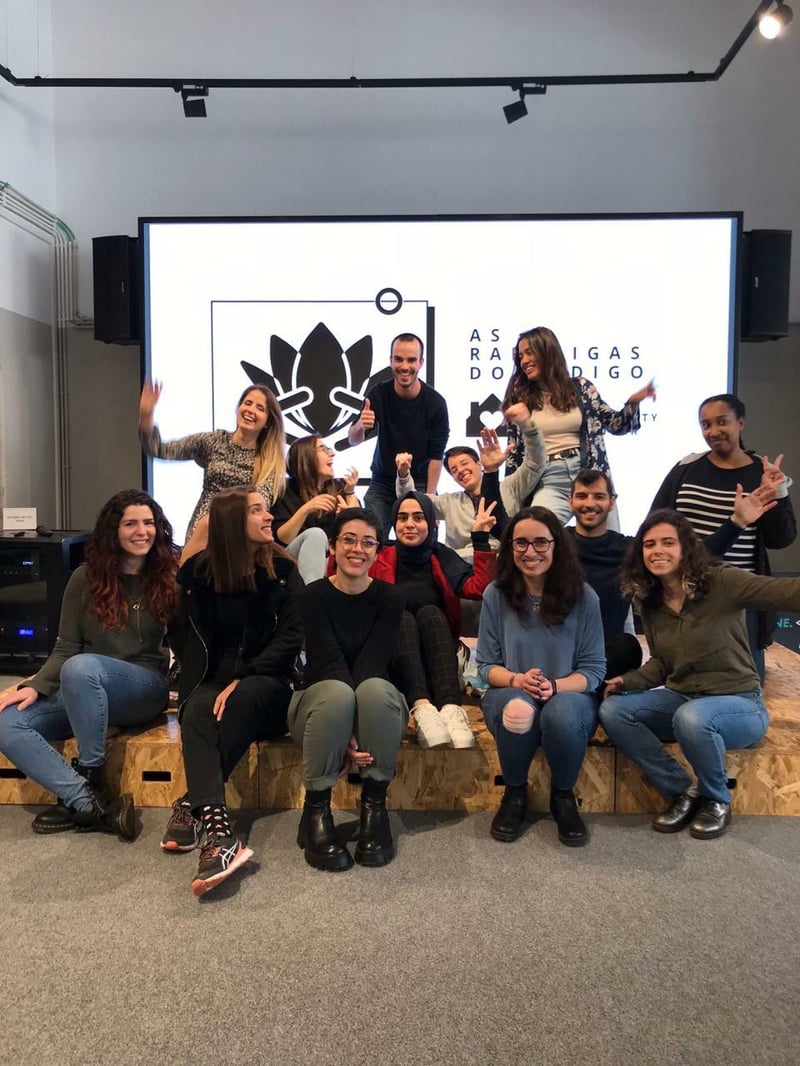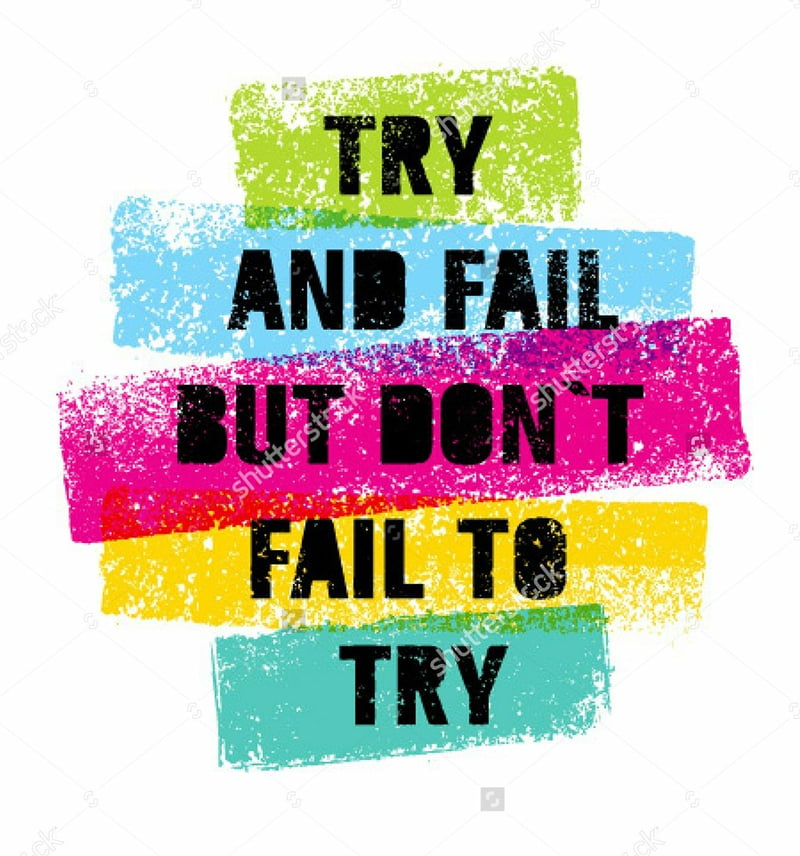Inspire me Monday - intro
How wonderful it is when we aspire to make a change in our lives and careers, and we find someone who shares an amazing story on how they did achieve their goals and somehow, parts of their path remind us of where we are now..
Everything looks easier when we think if this person was able to do it, I also can do it!
With this in mind, I decided to start interviewing people who did a career change, from different backgrounds to different roles!
This will take place every first Monday of the month and it's open for topic ideas or people's recommendations, so feel free to do it!
Our Guest today: Rita Pereira
Rita is super easy-going and fun to have around. She loves to travel the world and to know different cultures. She is always up for a beer🍻 and relaxing with nice music in the background. Rita works as a Product Manager at Tibber and she is also a mentor and teacher at a project that teaches women how to code for free.
1. You have a bachelor's in Economics, how did you get interested in Data Science?
Maths has always been my favorite subject, by far. The subject options in high school, a regular public school in the south of Portugal, didn’t intrigue me. A bachelor's in Economics and Management seemed like a good and appropriate route for me. I attended the reputable Nova SBE University in Lisbon, the perfect city. I enjoyed my time at Nova, focusing on calculus, algebra, and statistics e.g. statistics and econometrics which are the best base for data science. I was also exposed to macroeconomics, which I found really enthralling.
It was not until I started my master's in Finance at Erasmus University Rotterdam that I came across an impressive tech society - where I was able to help organize a Machine Learning Bootcamp and found interest in Python and Machine Learning subjects.
After my master's, I worked in one of the few sectors in finance that I actually find interesting: Hedge Funds and VCs.
In February 2020 I started a part-time Bootcamp in data analytics and felt the need to learn Python in more depth, dive into machine learning, and achieve the typical tech stack of a data analyst (python, sql, tableau). By developing my technical skills I would become a more complete analyst.
After almost 3 years at the hedge fund, I fully merged into running the analytics team, using Python for report automation, managing our databases, and using APIs (eg. Bloomberg) to get important data for investment analysis, among other projects and tasks.
2. What Data Science course did you take and what did you consider when choosing?
Even though I did some Data Engineering in the fund, my main area of interest was in Data Analytics. Choosing this felt very natural as it joins the technical skills with the business intuition one needs to have in order to transform raw and non-organized data (e.g. non labeled JSON files) into actual meaningful findings and conclusions
I took into consideration my skills (not super technical as a data engineer, but also not so business-focused as a business analyst or a consultant only) and what I liked doing. I enjoy a technical challenge where I can see real-life impact and context.
Having this in mind, I searched for a Bootcamp with a part-time option and where I was perhaps able to get a scholarship. I found Ironhack and I applied for a scholarship. When I got the confirmation that I was accepted, the price/quality seemed like a very good investment.
3. Major challenges that you faced while studying? Was it easy to follow or was there a time that you felt less motivated?
Studying in general? Yes, the core subjects in the Finance Masters.
In Data Science: I was never really good with Tableau and at producing dashboards. I am more of a resolve a problem, debug a script that is not working, or solve road blockers kind of person than working on the same dashboard to perfection. This is, however, something important for a good business intelligence analyst.
4. Do you have any tools/websites that help you when you are studying that you want to recommend?
I love medium: people in the area share really good projects and opinions. From data science to product management, UX, tech, etc.
Code wise I can not recommend data camp enough. It helped me start with python at the time!
I also recommend taking courses or reading into statistics and econometrics if you’re thinking of diving into the data science world. I see a lot of analysts that are very good at compiling SQL queries or producing dashboards but don’t really understand the logic behind them or don’t interpret the results with statistical accuracy (e.g. ab testing)
5. After finishing the course, how was the job hunting process? Did you find a role in Data Science? If not, why not?
I did the Data Science Bootcamp while I was working at the fund. After that, I did try to find jobs in Data Science. Once deciding where to go, I had the following positions: Growth Analyst, Data Scientist, and even Analytics Engineer (which would be a more junior position).
I decided to opt for the role of Growth Analyst, not for the position in itself, but for the company (mission, size and country) and the people I would be working with. I knew I would have the flexibility to move around into the position that would be more fit for me (that could be either more technical or less). I don’t regret this decision for a second. During these months of job hunting, there were many take-home assignments: Python scripts to analyse, data sets, presentations and reports, etc.
It is definitely something one gets better with time so please don’t feel frustrated if you don’t go through your first assessment and always ask for the most detailed feedback possible. Something that is very important for a Data Analyst: I also knew what kind of data I wanted to work with.
After working with financial data for so long I knew I was way more interested in user and behaviour data - where I can connect the data points I see with actual behaviour. Super interesting right? :p Therefore I looked for positions where I would work more with growth and product teams ;)
6. A year ago you joined a volunteer community whose goal is to bring more women into the tech world. How did it happen and what were your intentions when joining?
Yes, lucky me! I found an amazing community with such inspirational people and workshops. I was in Cape Verde volunteering last year, where I had some friends, older girls, at the community center, who I was trying to incentivize to learn more about coding and tech. “As Raparigas do código” came a bit randomly on my LinkedIn but I remember connecting so much to it: it opens doors with easy and free access to women of all ages that might feel a bit insecure about taking such a “huge step”.
They may just want to test the waters and talk to someone they really relate to and feel comfortable that works in an area that interests them.
That is just one of the reasons why this community is really important. We not only organize networking events for women to meet women but more importantly, we put a lot of work into real and free workshops (coding basis, data science, and important soft skills, among other ad hoc activities)
7. You now work as a Product Manager, can you walk me through that change?
After 3 months working as a Growth Analyst I took the opportunity and jumped to the role of Product Manager and Squad Lead for the team that was focusing on how to create and implement tools and technologies that encouraged to-be customers to sign up to Tibber⚡ It's an experimentation based and conversion focused amazing team! I still work a lot with data: when it comes to AB testing, user tracking analytics, and growth metrics. I am now also learning a lot more about web and app development, and tech in general.
Nevertheless, there are other skills and parts of my job that I now realise were not being used as a Data Analyst: I love building a whole project from scratch, from a problem, a user pinpoint, an idea, or an insight from a test. Going through the ideation process, the design (UI and UX), the implementation, the copy, the testing, improvement, talking, and convincing other teams (aka stakeholder management aka lobbying).
Finally, above everything else, I love helping my team and pushing them into being happy at work and being the best versions of themselves.
8. How does your background impact your current job?
My background in Economics and Data Science definitely helped me understand data and make database conclusions very fast and with accuracy.
The fact that I am extroverted and naturally very social is also a huge help when it comes to influencing and helping the team and other stakeholders, as well as being the face of the team in saying no, announcing releases and failures, etc.
Being pragmatic definitely helps in shipping features faster, learning from them, and then improving versus being a perfectionist - which I am not, at all.
I would even say that having played basketball since a young age has made me into an absolute team player (I am much more competitive in a group than individually) plus playing musical instruments and having a passion for music in general has helped with focus: more efficient at work in less time and being able to multitask while focusing.
9. You now work at Tibber, can you tell me a little more about the company itself?
Tibber is a “digital electricity” supplier that uses AI to switch around power for houses based on their predicted levels of consumption. Tibber replaces traditional utilities with smart technology, supplying its customers with renewable energy at transparent prices.
In addition, its app provides real-time analytics into energy usage, and pairs with a variety of smart home devices to reduce electricity consumption at home. Tibber has set a target to reduce the residential electricity consumption for European households by 20%. Currently operating in Norway, Sweden, Germany and the Netherlands.
10. Do you have any advice to give other people that want to start a role in tech?
The advice I can give is more appropriate to start-up and scale up companies.
Find a sector or company that you identify with or find a company where you connect with the team. The position you can figure out later: you’ll learn so much and even find other avenues of interest (e.g. web devs turned into designers, engineers turned PM).
If you work hard, show determination and interest you’ll have the leverage to move into the position that fits you better later on.
11. Final remarks that you want to share with us?
Just that work - just like life - s superfluid and nothing that we choose or start needs to be final and with no turnaround. We are all learning, testing, figuring it out. If tech and coding seems interesting but also super scary in a male dominated world - which in big part, is - take smaller steps.
Find a community, people that you identify with, go to talks that relate to subjects that you are interested in. Read, listen to podcasts, get on LinkedIn and talk with people. Try, fail and go back and do it again. BUT PLEASE PLEASE FEEL LIKE YOU CAN TRY AND FAIL <3























